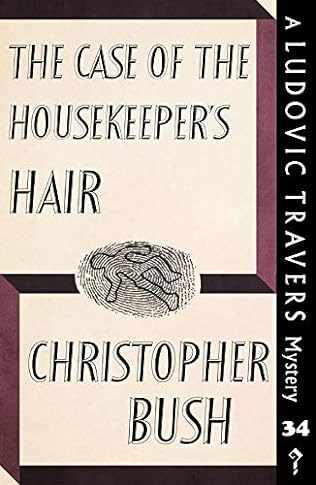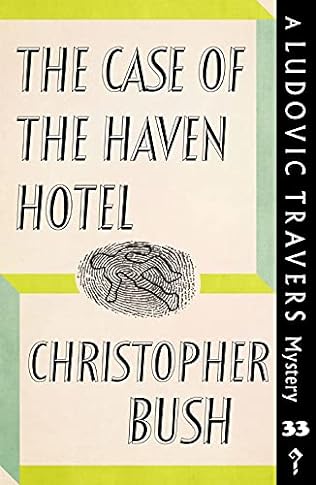A review of The Case of the Fourth Detective by Christopher Bush – 240524
It is curious how a TBR pile constructed at random can display unexpected thematic links. Take the thirty-ninth novel in Christopher Bush’s long-running Ludovic Travers series, The Case of the Fourth Detective, originally published in 1951 and reissued by Dean Street Press. Rather like the later Surfeit of Suspects by George Bellairs it deals with financial skullduggery and like Agatha Christie’s earlier Cards on the Table has the concept of four sleuths working on the case. To complete the strange linkage Curtis Evans’ excellent introduction suggests that one of the characters, the larger than life Matthew Solversen was loosely based on another Dean Street Press favourite, E R Punshon.
Reading it as a general election is called, it is fascinating to recall how punitive levels of taxation were in the period immediately after the Second World War. A transformative social revolution was underway with the introduction of free healthcare, moderately decent housing and the reconstruction of a war-ravaged economy and country and so for the majority the concept of soaking the rich was not an unwelcome strategy. Bush, though, is one of the more overtly political crime writers and this book is a prime example of his distaste for Atlee’s government and its fiscal policies.
The book focuses around the murder of Owen Ramplock and its consequences on a privately owned business which is now facing the prospect of having to fund the second lot of death duties within a year or so after the death of the previous owner, Sam Ramplock. There is a very real prospect that company would either have to go public, like W H Smith, or be taken over, neither routes appealing to Ramplock’s widow, Jane. There is, however, a knight in rather tarnished armour, Herringwood, who is willing to take over the company, albeit to save his own skin and avert his shareholder’s attention from a major faux-pas.
As is his wont Bush has created a complicated web of motives. Owen Ramplock was disliked by his senior staff, difficult to work with and in his private life was conducting an affair. He was also a fresh air fiend, a fact that is to prove significant. There is a mysterious visitor, Prince, who appears to have been on the scene when Ramplock was murdered and, also, when Winter was killed for knowing too much, rock-solid alibis which need to be broken, a small shoal of red herrings, a false moustache, a mystery woman whose identity holds a key to the mystery, and a decent number of suspects.
There is much for Travers, Wharton and Matthews to get their teeth into. Travers and Wharton’s relationship is one of mutual respect and rivalry and once more Wharton is quick to claim the credit when Travers’ wilder theories turn out to be correct. The book is structured rather like a prolonged tease for the reader, the clues are all there but the narrative does its best to obfuscate matters and we are grateful for Travers’ end of case notes to provide a clear precis of what we have just read. Always mistrust the person who seems to be most helpful.
Having followed Travers through thirty-nine cases, it is interesting to reflect on the changes in his character, some subtle, some les so. He is now far removed from the intellectual, almost ascetic, upper class man that we first encountered. He is now married, although his wife, Bernice, does seem to be away a lot, claims now to be middle class and is not averse to a dalliance, on this occasion with the young secretary at Ramplock’s, Daisy Purkes. Perhaps the key to the longevity of the series is Bush’s willingness to keep his principal character broadly in tune with the changing mores of British society. Bush never fails to provide his reader with a fascinating intellectual puzzle and an insight into a changing world.




